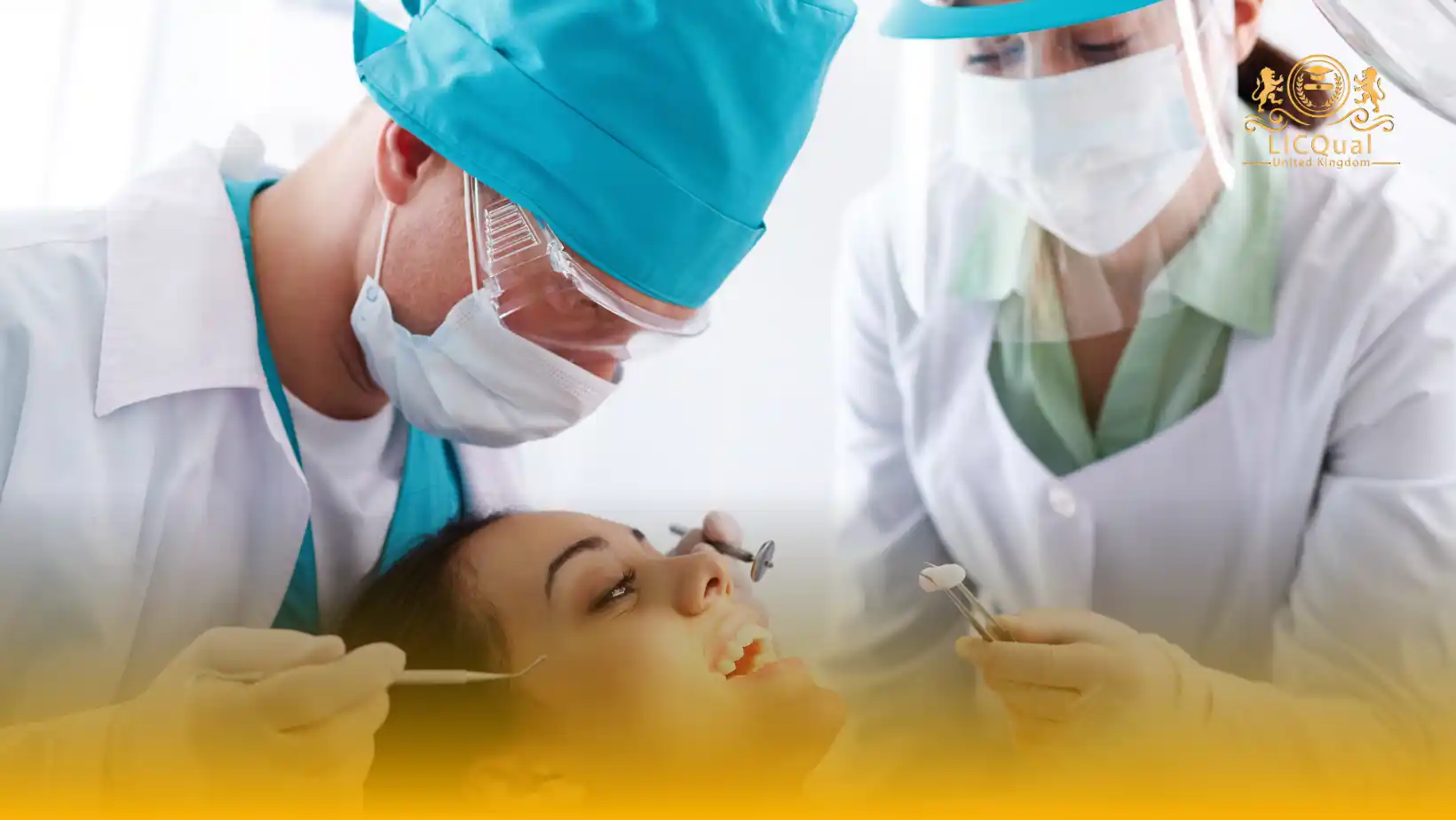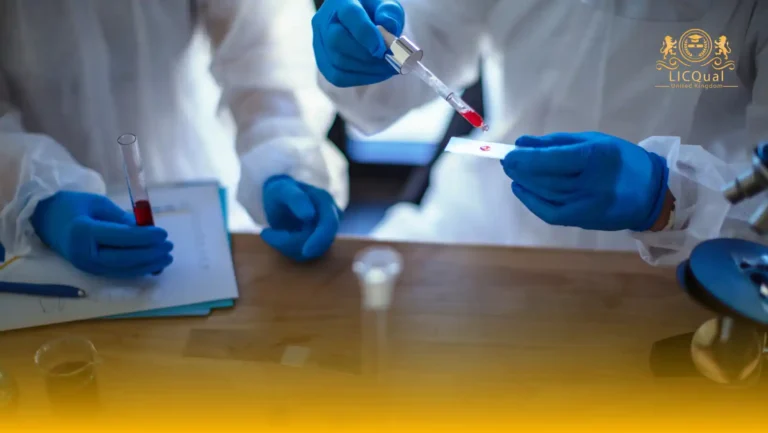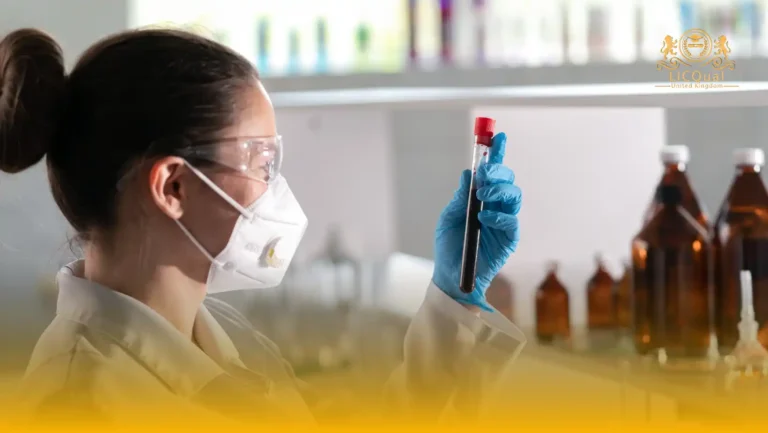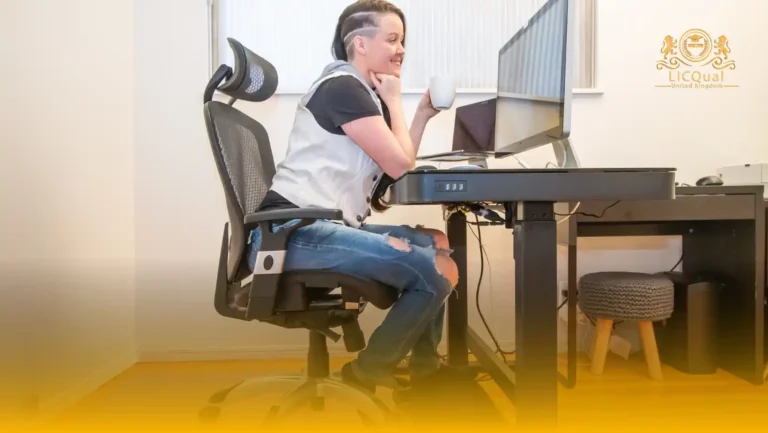The LICQual Level 7 Postgraduate Diploma in Oral and Maxillofacial Surgery (PgDOMS) is a prestigious and internationally recognized qualification designed for dental professionals, surgeons, and medical practitioners who wish to specialize in advanced oral and facial surgical procedures. This Level 7 Postgraduate Diploma in Oral and Maxillofacial Surgery equips learners with the clinical expertise, technical skills, and evidence-based knowledge required to manage complex surgical cases with confidence and precision.
Through this advanced postgraduate diploma in oral and maxillofacial surgery, participants gain comprehensive training in areas such as facial trauma management, jaw reconstruction, dentoalveolar surgery, cleft and craniofacial correction, and oral pathology. The curriculum emphasizes safe surgical practice, patient-centered care, and modern techniques, ensuring graduates can handle challenging cases while optimizing outcomes. By combining rigorous theoretical instruction with practical, hands-on experience, the LICQual Level 7 PgDOMS prepares learners to excel in both clinical and academic environments.
Delivered by experienced oral and maxillofacial surgeons and educators, this accredited postgraduate diploma in oral and maxillofacial surgery follows international standards and incorporates advanced surgical planning tools, case-based learning, and digital simulation exercises. The program allows participants to refine their surgical precision, decision-making, and patient management skills while staying updated with the latest advancements in maxillofacial surgery.
The LICQual Level 7 Postgraduate Diploma in Oral and Maxillofacial Surgery is ideal for practicing dentists, oral surgeons, and medical professionals seeking specialization, as well as those pursuing academic or research opportunities in oral and maxillofacial disciplines. With flexible study formats including blended and distance learning, the program allows professionals to balance ongoing clinical practice with advanced education.
Completing this international diploma in oral and maxillofacial surgery Level 7 not only enhances clinical competence but also opens doors to career advancement, specialist roles, and global recognition. Whether your goal is to advance surgical skills, lead reconstructive projects, or contribute to research and education, the PgDOMS provides the knowledge, experience, and credentials needed to achieve professional excellence and elevate your career in oral and maxillofacial surgery.
Course Overview
Qualification Title
LICQual Level 7 Postgraduate Diploma in Oral and Maxillofacial Surgery (PgDOMS)
Total Units
6
Total Credits
120
GLH
600
Qualification #
LICQ2200690
Qualification Specification
To enroll in the LICQual Level 7 Postgraduate Diploma in Oral and Maxillofacial Surgery (PgDOMS), applicants must meet the following criteria:
|
Qualification# |
Unit Title |
Credits |
GLH |
|---|---|---|---|
|
LICQ2200690-1 |
Advanced Diagnostic Techniques in Oral and Maxillofacial Surgery |
20 |
100 |
|
LICQ2200690-2 |
Surgical Management of Oral Pathologies and Lesions |
20 |
100 |
|
LICQ2200690-3 |
Maxillofacial Trauma and Reconstructive Surgery |
20 |
100 |
|
LICQ2200690-4 |
Orthognathic Surgery and Management of Dentofacial Deformities |
20 |
100 |
|
LICQ2200690-5 |
Clinical Oral and Maxillofacial Surgery: Hands-on Practice and Case Management |
20 |
100 |
|
LICQ2200690-6 |
Professional Practice, Ethics, and Continuing Professional Development in Oral and Maxillofacial Surgery |
20 |
100 |
By the end of this course, learners will be able to:
1. Advanced Diagnostic Techniques in Oral and Maxillofacial Surgery
By the end of this unit, the learner will be able to:
- Critically evaluate clinical, radiographic, and laboratory findings for accurate diagnosis.
- Utilise advanced imaging technologies, including CBCT, CT, and MRI, in diagnostic processes.
- Interpret diagnostic data to support precise surgical treatment planning.
- Assess risk factors and patient-specific considerations for surgical intervention.
2. Surgical Management of Oral Pathologies and Lesions
By the end of this unit, the learner will be able to:
- Diagnose and classify benign and malignant oral pathologies.
- Select and perform appropriate surgical techniques for oral lesions and cystic conditions.
- Apply evidence-based approaches to minimise complications and promote healing.
- Evaluate surgical outcomes and implement post-operative care protocols.
3. Maxillofacial Trauma and Reconstructive Surgery
By the end of this unit, the learner will be able to:
- Assess and classify maxillofacial trauma cases.
- Perform surgical interventions for fractures of the facial skeleton.
- Plan and execute reconstructive procedures to restore functional and aesthetic outcomes.
- Apply multidisciplinary approaches in the management of complex trauma cases.
4. Orthognathic Surgery and Management of Dentofacial Deformities
By the end of this unit, the learner will be able to:
- Assess patients for orthognathic surgery using clinical and radiographic analysis.
- Develop comprehensive treatment plans for skeletal malocclusions and facial asymmetries.
- Execute surgical procedures for corrective jaw surgery with precision.
- Manage pre- and post-operative care to ensure optimal results.
5. Clinical Oral and Maxillofacial Surgery: Hands-on Practice and Case Management
By the end of this unit, the learner will be able to:
- Demonstrate advanced surgical skills in oral and maxillofacial procedures.
- Document and monitor clinical cases following standardised protocols.
- Apply critical thinking to solve intraoperative and postoperative challenges.
- Present detailed case studies showcasing surgical outcomes and reflective analysis.
6. Professional Practice, Ethics, and Continuing Professional Development in Oral and Maxillofacial Surgery
By the end of this unit, the learner will be able to:
- Apply ethical principles and legal requirements in surgical practice.
- Communicate effectively with patients, families, and multidisciplinary teams.
- Create a structured CPD plan to maintain and improve surgical competencies.
- Engage with current research and innovations to enhance clinical practice.
The LICQual Level 7 Postgraduate Diploma in Oral and Maxillofacial Surgery (PgDOMS) is designed for dental professionals, surgeons, and medical practitioners who want to advance their expertise in complex oral and facial surgical procedures. This program is ideal for those aiming to enhance clinical precision, gain international recognition, and build a career in advanced maxillofacial surgery. Whether you are a general dentist, an experienced surgeon, or a professional seeking academic or research opportunities, this Level 7 Postgraduate Diploma in Oral and Maxillofacial Surgery provides the skills and credentials needed to excel in high-level surgical practice.
1. Practicing Dentists Seeking Surgical Specialization
- Gain expertise in dentoalveolar and minor oral surgical procedures.
- Learn advanced techniques for managing impacted teeth and cysts.
- Understand surgical anatomy and patient safety protocols.
- Enhance clinical decision-making in complex cases.
- Expand professional scope with a recognized postgraduate qualification.
- Build confidence to integrate surgical practice into your clinic.
2. Oral and Maxillofacial Surgeons Expanding Expertise
- Refine surgical skills in trauma management and reconstructive procedures.
- Master techniques in orthognathic surgery and corrective jaw procedures.
- Learn the latest approaches in soft tissue and bone regeneration.
- Improve outcomes in implantology and peri-implant surgery.
- Strengthen leadership skills in surgical teams.
- Gain an internationally recognized Level 7 diploma to enhance career opportunities.
3. Medical Practitioners Interested in Maxillofacial Surgery
- Acquire knowledge in facial trauma management and surgical interventions.
- Develop proficiency in oral pathology and pre/post-operative care.
- Learn modern techniques for cleft palate and craniofacial correction.
- Understand interdisciplinary collaboration with dental and medical teams.
- Enhance clinical practice with evidence-based surgical approaches.
- Expand professional opportunities in hospital or private practice settings.
4. Dental Graduates Building Advanced Surgical Skills
- Strengthen foundational knowledge in oral and maxillofacial surgery.
- Gain hands-on experience under expert supervision.
- Understand surgical planning, risk management, and patient communication.
- Prepare for specialist or postgraduate surgical roles.
- Develop confidence managing complex oral and facial cases.
- Enhance employability with an accredited Level 7 qualification.
5. Academic and Research-Oriented Professionals
- Pursue research in oral surgery, craniofacial reconstruction, or trauma management.
- Gain skills in academic writing, clinical study design, and publication.
- Develop teaching competence for dental and surgical education.
- Stay updated with innovations in maxillofacial surgery.
- Prepare for leadership roles in academic institutions.
- Build a professional network for international collaboration.
6. International Dental and Medical Professionals
- Gain a globally recognized postgraduate qualification in OMFS.
- Learn international standards and protocols for surgical practice.
- Access flexible blended or distance-learning options.
- Enhance eligibility for advanced clinical roles worldwide.
- Join a network of international surgeons and dental specialists.
- Build credentials respected across borders.
7. Dental Clinic Owners and Practice Managers
- Integrate advanced oral and maxillofacial surgical services into your clinic.
- Train and mentor staff in modern surgical techniques.
- Improve clinic reputation through specialist surgical offerings.
- Enhance patient satisfaction with high-quality care.
- Increase clinic revenue and service portfolio.
- Position your practice as a center for advanced oral and facial surgery.
Centres delivering the LICQual Level 7 Postgraduate Diploma in Oral and Maxillofacial Surgery (PgDOMS) must meet strict quality standards to ensure learners receive high-level, professional training and support. The following requirements must be fulfilled:
- Qualified and Experienced Staff
- Trainers, assessors, and mentors must hold relevant academic and professional qualifications in oral and maxillofacial surgery or related specialities.
- Staff should possess extensive clinical experience and current knowledge of best practices, surgical techniques, and industry standards.
- Appropriate Clinical Facilities
- Access to fully equipped surgical training facilities, simulation labs, or approved hospital settings.
- Availability of essential surgical instruments, diagnostic tools, imaging equipment, and sterilisation systems.
- Learning and Teaching Resources
- Comprehensive learning materials, including textbooks, journals, case studies, and access to online research databases.
- Multimedia and visual aids for demonstrating complex surgical techniques.
- Assessment and Quality Assurance Systems
- Structured assessment methods, including practical evaluations, case-based discussions, and written assignments.
- Robust internal quality assurance (IQA) procedures to maintain assessment reliability and compliance.
- Learner Support Services
- Academic guidance, mentorship, and career development support.
- Access to welfare and pastoral services to support learner well-being.
- Compliance with Health and Safety Standards
- Adherence to local regulatory requirements for infection control, surgical safety, and patient confidentiality.
- Technological Capabilities
- Facilities for online learning, virtual demonstrations, and remote assessments where applicable.
These requirements ensure that centres maintain excellence in delivering advanced postgraduate surgical training, enabling learners to achieve professional success in oral and maxillofacial surgery.
Assessment and Verification
All units within this qualification are subject to internal assessment by the approved centre and external verification by LICQual. The qualification follows a criterion-referenced assessment approach, ensuring that learners meet all specified learning outcomes.
To achieve a ‘Pass’ in any unit, learners must provide valid, sufficient, and authentic evidence demonstrating their attainment of all learning outcomes and compliance with the prescribed assessment criteria. The Assessor is responsible for evaluating the evidence and determining whether the learner has successfully met the required standards.
Assessors must maintain a clear and comprehensive audit trail, documenting the basis for their assessment decisions to ensure transparency, consistency, and compliance with quality assurance requirements.







